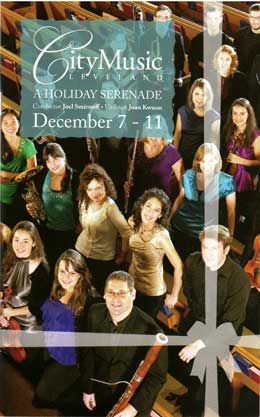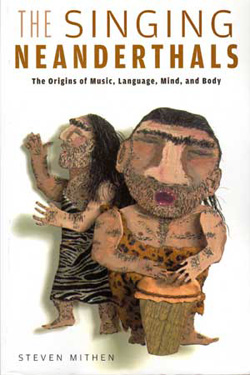Who Wouldn’t Enjoy
Some Cheap Live Music?
Cleveland, the reputed birthplace of rock and roll isn’t just that. All the city’s a stage for every musical genre imaginable. The premiere installment of Cheap Live Music features a preponderance of performances, mostly classical, presented with the purpose of entertaining holiday audiences across northeast Ohio.
We’re a talented town. CLM is here to toot our own horn. We will brag about all of the great people, places and organizations making cheap live music possible!
The Mystery of Music
Steven Mithen wrote in the preface to his book, The Singing Neanderthals, the Origins of Music, Language, Mind and Body:
“The propensity to make music is the most mysterious, wonderful and neglected feature of humankind. ”
Mithen, a professor of Early Prehistory and Head of the School of Human and Environmental Sciences at the University of Reading, drew together strands from archaeology, anthropology, psychology, neuroscience and musicology to explain why we are so compelled to make and hear music.
I haven’t read the book yet. I bought it for my husband, a former anthropology major, for Christmas a few years ago, partially because it also interested me, and, although he’s no musician, he embraces and enjoys all kinds of music as much as anyone can.
Scientifically Speaking
Shortly after that, PBS presented The Music Instinct, Science & Song, which featured Mithen and other scientists seeking to explain the mystery and the wonder of it all.
“ The Neanderthals—there’s no evidence that they had language. But they must have had a sophisticated form of communication. They were just like humans, they might would have had to have told other people how they’re feeling, they would have had to look after their children and nurture them. They had to have made plans for group hunting and general movement. So what sort of communications system did they have? Now I came to the conclusion which must have been based on high degrees of musicality because we can see traces of that in our nearest living relatives. This seems to be the only form of communication with that language that would have been complex to allow them to have functioned as a social group, and yet not gone that extra step to modern language.
So I think they communicated by using sets of phrases, almost like musical phrases that would have had semantic meanings, phrases such as something that would translate into “Let us share meat,” “We’ll go hunting” or “How are you feeling?” but would have been expressed in musical tones, different types of pitches, different types of rhythms. They might have used these also to build a sense of group identity, very much how we use music today, especially for caring for infants, you know just like we do today with our youngest children before they got language, we sing to them and move them rhythmically. I’m sure the Neanderthals would have been doing exactly the same. ”
- Steven Mithen
May 21st 2009 (from program above)
Music and Evolution
Music and the Neanderthal’s Communication

Scientist and author of The Singing Neanderthals: The Origins of Music, Language, Mind, and Body, Stephen Mithen explains his theories about The Neanderthal’s musicality.
Music and Evolution: Music and the Neanderthal's Communication |Music Instinct |PBS
Check our Cheap Live Calendar to find out who's serving up some cheap live music!
-Pam Steinman


